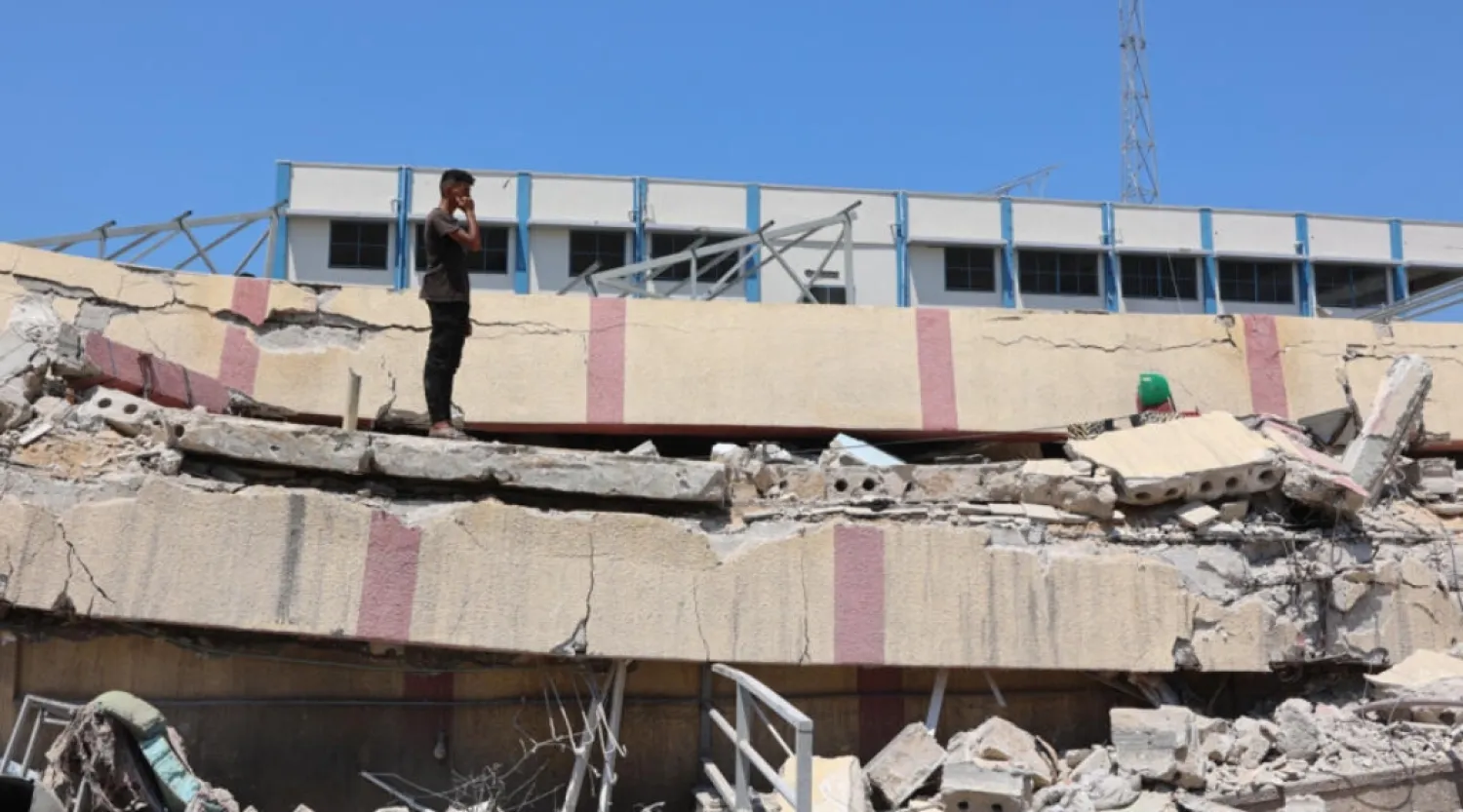The heads of Israel's Mossad spy agency and Shin Bet domestic security service took part in talks towards an eventual Gaza hostage agreement in Cairo on Thursday, an Israeli government spokesman said. Meanwhile, the Israeli military continued to bomb several locations in the Gaza strip, killing at least five people, according to the Gaza civil defence agency.
Hopes for a deal have dwindled though as Israel and Palestinian militant group Hamas have traded blame for failing to reach a deal after more than 10 months of war in the Gaza Strip.
A main sticking point remains Hamas's longstanding demand for a "complete" Israeli withdrawal from Gaza, which Prime Minister Benjamin Netanyahu has opposed.
Netanyahu's spokesman Omer Dostri told AFP that Mossad spy agency chief David Barnea and Ronen Bar, head of Israel's Shin Bet domestic security service, were in the Egyptian capital and "negotiating to advance a hostage (release) agreement".
The war triggered by Hamas's unprecedented October 7 attack on Israel has devastated Gaza, displaced nearly all its population at least once and triggered a humanitarian crisis in the besieged Palestinian territory.
Diplomatic efforts have intensified to try to avert a wider war following the high-profile killings of two Iran-backed militants that sparked threats of reprisals from Tehran and its allies, which blamed Israel.
US Secretary of State Antony Blinken headed home without a breakthrough on Wednesday from his latest tour of the Middle East aimed at finalising a ceasefire.
Blinken spoke with the Qatari emir, Sheikh Tamim bin Hamad Al-Thani, on Thursday after the two were unable to meet during the US top diplomat's brief stop in Doha earlier this week.
They discussed the latest push towards a truce and "affirmed that no party in the region should take actions to undermine efforts to reach a deal", the State Department said.
Netanyahu, whose hard-right coalition relies of the support of members opposed to a truce, said Israel must "control" the Palestinian territory's border with Egypt.
"Netanyahu insists on the principle that Israel control the Philadelphi Corridor in order to prevent Hamas from rearming itself," his office said.
An earlier statement rejected as "incorrect" media reports that "Netanyahu has agreed that Israel will withdraw" from the strip of territory along the Gaza-Egypt border.
During his regional tour, Blinken said Netanyahu had accepted a US "bridging proposal" for a truce that "is very clear on the schedule and the locations" of the Israeli withdrawal.
Without mentioning Philadelphi directly, Blinken also said that Washington "does not accept any long-term occupation of Gaza by Israel".
Israeli newspaper Yediot Aharonot, citing "officials knowledgeable about the negotiations", reported that "the Americans understood the mistake" Blinken had made in his remarks about Netanyahu accepting the proposal.
Hamas said Sunday that the US proposal "responds to Netanyahu's conditions" and accused him of "obstructing an agreement".
Some analysts and critics in Israel have also accused Netanyahu of prolonging the war.
In its statement, Hamas cited Netanyahu's "insistence on continuing to occupy" the Philadelphi Corridor as well as Netzarim junction, which sits at a strategic point between northern and southern Gaza and where witnesses reported clashes on Thursday.
'Tired of displacement'
Mahmud Bassal, spokesman for the Gaza civil defense agency, said "five bodies were pulled from under the rubble" of a house in Khan Yunis, southern Gaza's main city, hit by Israeli bombardment on Thursday.
"The bombing never stops," said 32-year-old Tahani Abu Sherbi, a mother of four, in central Gaza.
Although Israel has issued an evacuation order for the area, "we decided not to move despite the danger," she told AFP.
"We are tired of displacement."
Witnesses said they saw heavy Israeli shelling in Khan Yunis and air strikes in southern and central Gaza, while the military said Israeli troops intensified operations around Khan Yunis and Deir al-Balah further north.









